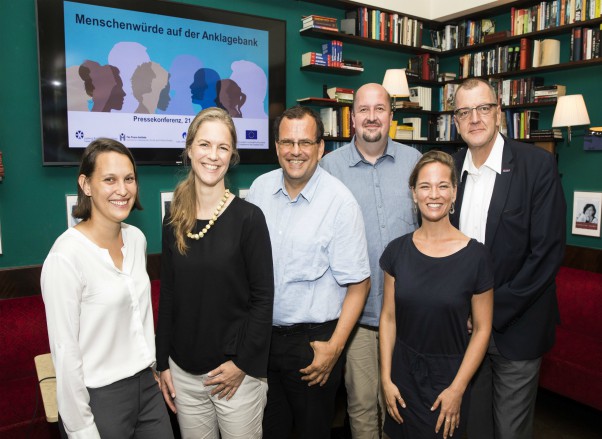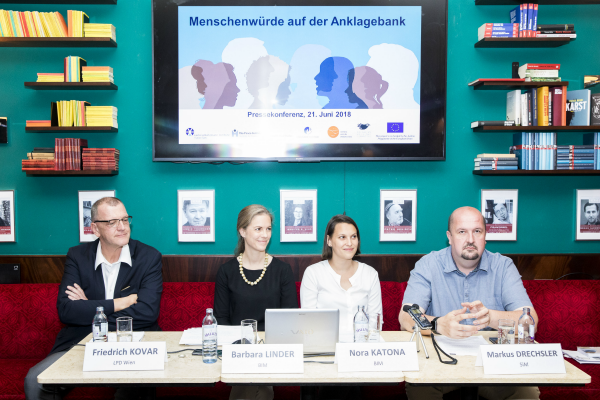DIGNITY at TRIAL project: best practice example of DG JUST funding

date: 30/01/2019
The DIGNITY at TRIAL project, co-funded by the Justice programme, started in 2016 and ended in July 2018.
The aims:
People with intellectual and/or psychosocial disabilities are among the most vulnerable groups of suspects in criminal proceedings. If they come into conflict with the law, they face a particularly high risk of not getting a fair trial. In many cases, their vulnerability due to illness or disability is not identified in time or not taken into account. Their procedural rights, e.g. to information, access to a lawyer and medical assistance, in particular while deprived of their liberty, are often not adequately upheld.
The project aimed to strengthen the procedural rights of suspected and accused persons with intellectual and/or psychosocial disabilities in criminal proceedings by raising awareness and building capacity among the professionals involved. It also aimed to improve national and international interdisciplinary networks.
The Boltzmann Institute of Human Rights (Austria) coordinated the project with partners from Bulgaria (Bulgarian Helsinki Committee), the Czech Republic (League of Human Rights), Lithuania (the Mental Health Perspectives organisation) and Slovenia (Peace Institute).

From left to right: Friedrich Kovar (Advisory, police), Barbara Linder (Project manager), Nora Katona (legal reseracher BIM), Markus Drechsler (Advisory, NGO)
The methodology:
The research team assessed the implementation of the EC Recommendation on safeguards for vulnerable persons suspected or accused in criminal proceedings (2013/C 378/02) in all five countries and identified structural challenges and good practices. The overall aim of the Recommendation is to guarantee vulnerable suspects a fair trial, which means, in particular, ensuring they can understand and participate effectively in criminal proceedings.
The project focused on the criminal procedure, from the moment of suspicion until the end of the proceedings. It did not cover penal sentences and compulsory treatment, but instead looked at pre-trial detention and preventive detention for medical assessment.
The project involved analysing legal sources, jurisprudence and empirical data from interviews with professional stakeholders and people with intellectual and/or psychosocial disabilities who had undergone criminal proceedings. In addition, two national roundtables were organised in each of the participating countries.
The results:
Each of the project partners established a national advisory group composed of up to six representatives of relevant stakeholders. The groups supported the researchers throughout the project with feedback and important directions and recommendations. The project partners drew up national reports with case studies and targeted recommendations.
The results of the research in all five countries were compiled in the Handbook “Dignity at Trial” for practitioners (police, lawyers, judges, prosecutors, prison officers and medical staff). It draws on broad stakeholder involvement in each country, which allowed the researchers to cover all perspectives, identify systemic problems and include the first-hand experiences of, and recommendations from, people with intellectual and/or psychosocial disabilities. It aims to raise awareness of the challenges faced by these people when they undergo criminal proceedings and to provide useful recommendations and tools.
The project culminated in an international conference in Vienna on 25 June 2018.
Our congratulations to all the consortium and Barbara Linder (the project manager) on the quality of this valuable work! We encourage all readers to visit the project website and to download, use and disseminate the outputs.
